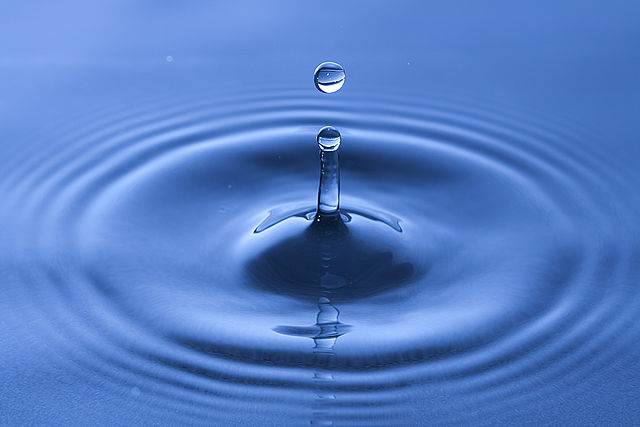![[[File:2006-02-13 Drop-impact.jpg|2006-02-13_Drop-impact]] File:2006-02-13 Drop-impact.jpg](https://upload.wikimedia.org/wikipedia/commons/thumb/f/f8/2006-02-13_Drop-impact.jpg/186px-2006-02-13_Drop-impact.jpg)
![[[File:Iceberg with hole near Sandersons Hope 2007-07-28 2.jpg|Iceberg_with_hole_near_Sandersons_Hope_2007-07-28_2]] File:Iceberg with hole near Sandersons Hope 2007-07-28 2.jpg](https://upload.wikimedia.org/wikipedia/commons/thumb/4/41/Iceberg_with_hole_near_Sandersons_Hope_2007-07-28_2.jpg/314px-Iceberg_with_hole_near_Sandersons_Hope_2007-07-28_2.jpg)
Foremost among the benefits of water is hydration, a fundamental physiological process vital for cellular function and homeostasis. Human bodies are predominantly composed of water, underscoring its pivotal role in maintaining bodily functions. Adequate hydration facilitates nutrient absorption, waste elimination, and lubrication of joints, thereby fostering optimal organ function and metabolic processes.
Furthermore, water serves as a potent detoxifying agent, aiding in the elimination of toxins and metabolic by-products from the body. Through perspiration, urination, and respiration, water facilitates the expulsion of harmful substances, safeguarding against the accumulation of toxins that may compromise cellular integrity and organ function.

Moreover, water acts as a conduit for nutrient transport, facilitating the delivery of essential vitamins, minerals, and macronutrients to cells and tissues. Its role in nutrient absorption and distribution underscores its significance in bolstering immune function, promoting tissue repair, and fortifying the body against illness and disease.
Beyond its physiological functions, water plays a pivotal role in temperature regulation, particularly through perspiration and evaporative cooling mechanisms. During periods of exertion or exposure to high temperatures, the body relies on water to dissipate heat through sweat, thereby preventing overheating and maintaining optimal body temperature.
Cognitive function and mental acuity are also profoundly influenced by water intake. Research suggests that even mild dehydration can impair cognitive performance, attention, and mood. Adequate hydration, on the other hand, enhances cognitive function, concentration, and memory retention, underscoring the integral role of water in promoting mental clarity and alertness.
Furthermore, water consumption has been associated with weight management and appetite regulation. Drinking water before meals can promote a feeling of fullness, potentially reducing calorie intake and aiding in weight loss efforts. Moreover, substituting sugary beverages with water can mitigate calorie consumption and contribute to overall dietary balance and metabolic health.
In addition to its physiological benefits, water fosters skin health and vitality. Proper hydration promotes skin elasticity, suppleness, and moisture retention, mitigating the risk of dryness, irritation, and premature aging. By replenishing lost fluids and supporting skin barrier function, water contributes to a radiant complexion and overall dermatological well-being.
Furthermore, water consumption plays a pivotal role in digestive health and gastrointestinal function. Adequate hydration promotes regularity, facilitates nutrient absorption, and prevents constipation and digestive discomfort. By supporting the transport of nutrients and the elimination of waste, water fosters digestive efficiency and intestinal health.
In conclusion, the benefits of water to people’s health are manifold and far-reaching, encompassing hydration, detoxification, nutrient transport, temperature regulation, cognitive function enhancement, weight management, skin health, and digestive well-being. As the cornerstone of human physiology, water stands as a testament to the profound interplay between hydration and optimal health. Embracing water as a foundational element of lifestyle and wellness is paramount to nurturing vitality, resilience, and longevity in the journey towards holistic well-being.






